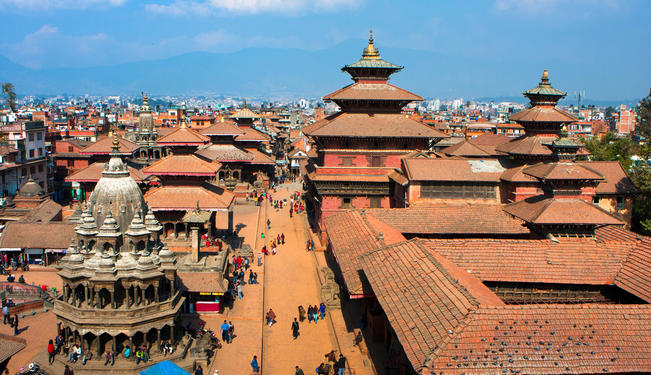Political and social reforms in Nepal are likely to bring initial insecurity.
Background
The year 2006 marked the end of the decade-long civil war in Nepal and the abolition of the monarchy. In the April 2008 elections, the Communist Party of Nepal (Maoist) emerged as the largest party and a federal republic was established in May 2008, with only four members of the 601-seat Constituent Assembly (CA) voting against the change.
Major parties such as the Unified Communist Party of Nepal (Maoist), Communist Party of Nepal (Unified Marxist-Leninist — CPN UML), and the Nepali Congress agreed to write a constitution to replace the interim agreement within two years. However, uncooperative behavior of the political parties saw the de-railing of the peace process.
The Maoists, as the largest party in the country, named Pushpa Kamal Dahal (Prachanda) as prime minister. CPN UML also joined this government, however, the Nepali Congress assumed the role of the main opposition party. The constitution-making process was marred by disputes on inter-party and intra-party lines. Some crucial issues of disagreement among parties were civilian supremacy over the army, the model of federalism, the continuation of the constitutional monarchy, and the establishment of a "Hindu State."
Due to the inadequacy of the interim constitution and a lack of consensus on the provisions of the new constitution, Nepal has survived several years without a functioning legislature. The executive’s legitimacy was often contested and the caretaker government was proven inefficient time and time again.
The situation was aggravated in May 2012 when the Constituent Assembly, elected in 2008, was suspended by the Supreme Court. Since then, law enforcement agencies had been operating at a diminished strength as there was no parliament to confirm new appointments. Elections for a new Constituent Assembly could not be held in November 2012, nor in April 2013.
On November 19, 2013, Nepal went to the polls despite calls for a boycott by a coalition of parties led by a hard-line Communist faction. These elections were crucial for ending the political stasis in the country and paving the way for a stable and productive future.
The purpose of the vote was to elect a new Constituent Assembly in order to devise a constitution. Initial results showed the Nepali Congress winning a plurality of the first-past-the-post seats with 105 of 240; the CPM UML was close behind with 91; and the CPN (Maoist) only won 26. Smaller parties and two independent candidates won the remaining 18 seats. The other 335 seats were allotted by proportional representation using a modified Sainte-Laguë method of allocation.
Why is Nepal Relevant?
Nepal has gone through a rapid and unprecedented transformation of politics and social life. Considering Nepal has 125 ethnic groups and 127 languages and scores of castes, the road towards political integration is going to be far from easy. For the first time, a reordering of society seems to be in the offing — dismantling hierarchical society, in which feudal lords and caste discrimination have been dominant.
While change brings new vision and a new order, it always brings uncertainty. Will Nepal succeed in enacting for itself a constitution that is both popular and legitimate? Will political parties endeavor to come to a consensus this time? What will the prospect of stability mean for its large populace, and how will this affect its position on the international front?
Answers to such questions will only come with time. Political and social reforms in Nepal are likely to bring initial insecurity and upheaval among people. Yet the elections themselves have been seen by many in the country as the first step towards a long journey which Nepalese people have to take together.
Image: Copyright © Shutterstock. All Rights Reserved
For more than 10 years, Fair Observer has been free, fair and independent. No billionaire owns us, no advertisers control us. We are a reader-supported nonprofit. Unlike many other publications, we keep our content free for readers regardless of where they live or whether they can afford to pay. We have no paywalls and no ads.
In the post-truth era of fake news, echo chambers and filter bubbles, we publish a plurality of perspectives from around the world. Anyone can publish with us, but everyone goes through a rigorous editorial process. So, you get fact-checked, well-reasoned content instead of noise.
We publish 2,500+ voices from 90+ countries. We also conduct education and training programs on subjects ranging from digital media and journalism to writing and critical thinking. This doesn’t come cheap. Servers, editors, trainers and web developers cost money.
Please consider supporting us on a regular basis as a recurring donor or a sustaining member.
Support Fair Observer
We rely on your support for our independence, diversity and quality.
Will you support FO’s journalism?
We rely on your support for our independence, diversity and quality.








